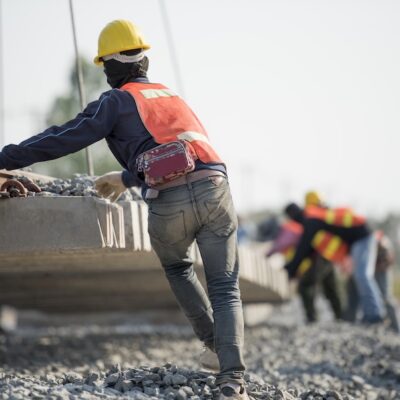Christchurch workers more likely to have jobs and earn more
Since devastating earthquakes struck over five years ago, workers in the Greater Christchurch region have bounced back from short-term job loss and are now more likely to have jobs, less likely to be on the dole, and have higher earnings on average than similar workers elsewhere.
851
Since devastating earthquakes struck over five years ago, workers in the Greater Christchurch region have bounced back from short-term job loss and are now more likely to have jobs, less likely to be on the dole, and have higher earnings on average than similar workers elsewhere.
Researchers at Motu Economic and Public Policy Research Trust recently published a paper examining the impact of the quakes on the labour market over the three years following the quakes. Motu is a not-for-profit, non-partisan research institute.
“While Canterbury workers’ employment outcomes deteriorated after the February 2011 quake, those workers were more likely to be employed three years later, and to have higher accumulated earnings,” said Arthur Grimes, Senior Fellow at Motu and a researcher on the project. “At the same time, they were less likely to be at the same employer, and more likely to have migrated to jobs in other New Zealand regions compared to similar workers elsewhere.”
“Workers whose firms received the Earthquake Support Subsidy were more likely to have stayed in Greater Christchurch than those who didn’t, although they were just as likely to have changed jobs,” said Dr Grimes.
The study finds evidence that the Earthquake Support Subsidy achieved its goal of delaying involuntary job loss. As a result, fewer workers made immediate decisions to leave the region – decisions that persisted over the long-run.
“It might seem counter-intuitive that Christchurch workers are now doing better on average in terms of employment or earnings than workers elsewhere. However, the same effect occurred in New Orleans after Hurricane Katrina because there was an increased demand for labour while the available labour force was decreasing, said Dr Grimes.
Statistics NZ estimates show the population in Christchurch City dropped a total of 4 percent in the two years to June 2012. Firms have reported difficulty hiring workers in Christchurch.
“Between September 2010 and March 2014, Christchurch experienced a 59 percent jump in the number of construction workers. Other industries, like retail and hospitality, had an initial decline in sales but have since recovered and are now growing at above the national average,” said Dr Grimes.
The impact of the earthquake on employees has varied. Workers in firms located in badly affected areas have had persistently worse employment outcomes than workers in less affected areas within Christchurch. The difference for workers persists in the long-run for employment and earnings statistics. Nevertheless, workers in both low and high earthquake impact areas are now less likely to be on the dole and more likely to have a job due to the increase in job opportunities.
“Not all groups have been affected positively, however. Women aged 25-54 and low-skilled women in Greater Christchurch have persistently lower earnings than expected,” said Dr Grimes. “This is consistent with the shift towards construction jobs, which are male dominated.”
The working paper “Labour Market Dynamics Following a Regional Disaster” by Richard Fabling, Arthur Grimes and Levente Timar, was funded by the Ministry of Business, Innovation and Employment through its Natural Hazards Research Platform.






